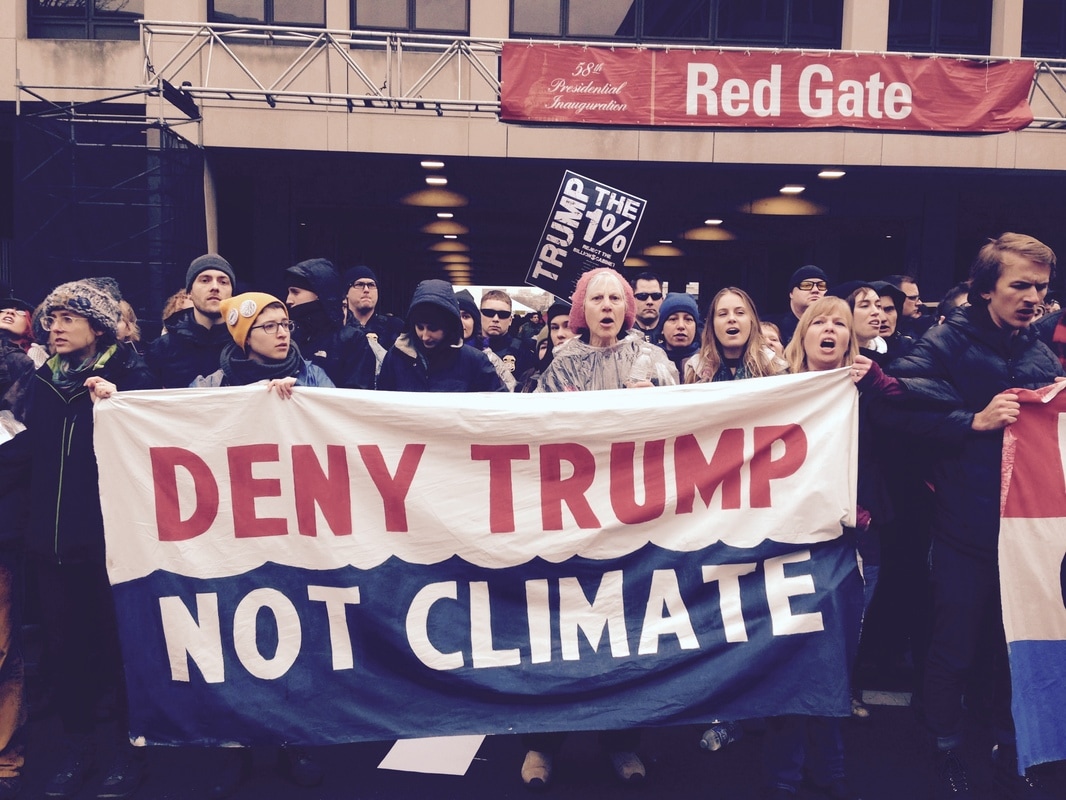Back in New Haven, it seems I’ve been on the streets at least twice a week, mostly for immigrant rights and protection of refugees and against the Dakota Access pipeline, which just got the green light from Trump’s Army Corps of Engineers to finish the pipeline under the Missouri River at Lake Oahe. It could start pumping oil 83 days from now, but lots of people are returning to the camps along the Cannonball River, including indigenous folks and three contingents of military veterans, for the Last Stand. A friend and I came within a day of driving out there ourselves in early December, but were advised by the leadership in North Dakota not to come due to the severity of the weather. Let’s see…83 days from now is just about May Day – seems like a great time for a visit to the site of what may be the most inspiring movement of my lifetime – and I ain’t young. And the weather will be much better then.
I recently had the opportunity to hear Diane Nash, a student leader of the Freedom Rides in 1961, which marked one of the most violent chapters of the Southern civil rights struggle. She spoke about that, about the role of women in the civil rights movement, where they were under-appreciated, and about the fundamentals of non-violence, including this one: “Oppression always requires the cooperation of the oppressed. An oppressive system is a partnership -- something the oppressed and the oppressor do together -- two sides of a coin. If the oppressed withdraw their cooperation and participation from the oppressive system, that system will fall.”
Nash said what kept her and her comrades going was singing to keep their spirits up, knowing they were willing to die for each other, and realizing if they gave up they'd have to continue living under segregation, which they were unwilling to do.
She also talked about the difference between a protest and a campaign. The latter includes several steps: 1) Investigation: Choose an objective. Analyze and understand how the oppressed are participating in the oppression. 2) Education: We do not want blind followers. We want to be constantly recruiting and educating people about the issue we are working on. 3) Negotiation: Sometimes you can solve a problem at this phase, when you come face to face with your opponent. We need to come with love and respect for the opponents as people but not tolerate what they are doing. 4) Demonstration: sit-ins, pickets, marches, time to draw the attention of the community. 5) Resistance: withdraw participation in the system such as non-payment of taxes, strikes, boycotts. Create a situation where it is easier for the target to grant your objective than deal with your resistance. 6) Take steps to see the problem doesn't recur.
I’ve been thinking a lot about how predictability is a privilege. It’s not the same as boring; rather, it’s being pretty sure that whatever you’re doing, you have a lot of control over the outcome. Whether it’s knowing what you’re having for dinner tonight (or that you’re having dinner at all) or knowing that whenever you leave home you’re very likely to return there safely. Poor people don’t have this privilege; nor do millions of African Americans, especially young men. Nor do the water protectors at Standing Rock. Nor do the Iraqi civilians who faced home invasions by U.S. troops or Syrian refugees who lost everything. Nor do any of us anywhere who take a stand for justice, risking arrest and who knows what else.
It’s hard to give up predictability, but I want a world of comrades like Diane Nash spoke of. I think that would be worth the trade-off.

 RSS Feed
RSS Feed
